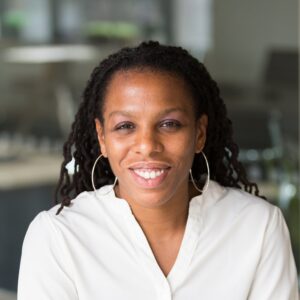
Being a Native American: Daily Habits to Decolonize Your Life
The problem of colonization today is no less acute than it has been all these centuries, because the colonization actually continues. Today, it is not only about the lands, resources, territory borders, and workforce. Today, colonization is also about lifestyles, languages, daily activities, habits, looks, beauty, all kinds of relationships, etc. The Internet and social media make colonization less obvious, but even more ever-pervasive.
One of the worst things about colonization as it is today is that the so-called “western” type of lifestyle, and the way of living one’s life, has become so widespread and overwhelmingly globally acceptable (and desired), that many people simply do not know and do not remember anymore what other lifestyles are there, or were there. Colonization is being addressed today by many authorities and people, but it is more about big-scale things, like land or healthcare. At the same time, it is possible for everyone to shift their focus in the way they view their daily lives, decolonize their daily activities, and learn a bit more about their true selves.
What Is Decolonization and Why Is it Important?
Colonized mentality is everything we experience when the cultural values and behaviors from the “West” (that is Western Europe or the USA) are presented as more desirable than any values, cultures, and behaviours coming from “non-West”. Colonized mentality has to do with lots of things, and it leaks into everyday life without even being perceived as something “alien”.
Decolonization, on the other hand, is embracing many values and behaviors that come from the indigenous experiences and cultures. Mental decolonization includes:
- becoming comfortable with multiformity and fluidity of things
- embracing many definitions and perceptions of the “same” object or phenomenon
- embracing intersectionality and interdependence
- acknowledging oneself in relationship with the land and other living things
- fall out of the concept of scarcity and emptiness, embracing the concept of enoughness instead
It is possible to work on mental decolonization through developing useful habits, thus making daily life less colonized and more joyful.
Daily Activities to Decolonize the Space Around You

Everyone can think of their daily activities and develop useful habits that can be enjoyed, at the same time decolonizing one’s mind, daily life, and also space around them.
The daily activities or habits to try out can include:
- cooking traditional foods
- replacing things in the house for more traditional items, one by one
- making traditional jewelry or elements of clothes
- getting traditional tattoos
- learning languages
- speaking own language
- giving traditional names to people or pets
- learning traditional trades
- reading books by local authors
- rediscovering the religious beliefs
- making daily and seasonal rituals
Often, many people feel they lack information about their traditions, because it was lost. In this case, it makes sense to try and make your own content, for social media, to spread the word and reinvent the culture. Being part of the people, it is only natural to continue and develop the traditional activities.
Mental decolonization is not only about remembering things that were in the past, and trying to bring them back and preserve them. It is also about continuing to create, in everyone’s own culture, keeping the spirit alive.
Final Thoughts
There are two important aspects of colonization that have been pressed into the current mentality so strongly that it is very hard to grow aware of them, and yet, they are present in almost everyone’s life. Even those who seem to be “privileged” according to the modern westernized culture do suffer the consequences of these aspects.
Firstly, this is the perception of land, and resources (including non-physical resources, such as emotional resources). Colonial mentality dictates that land and resources are something to be taken and exploited. However, a decolonized mentality is to acknowledge that no resource is endless, that land needs rest, and that resources need to be refilled.
And secondly, colonialism has enforced upon us the idea of scarcity and not-enoughness, making us feel never good enough, never doing enough, and leading us to feeling empty and exhausted. This dangerous concept needs to be decolonized, too, for the people to be able to embrace their wholesomeness.
